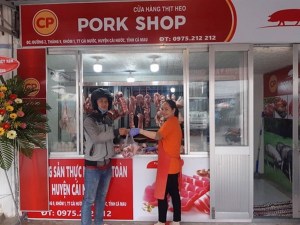
As recently as the 1970s, the United States and North Vietnam were waging a war that claimed 58,000 American lives and a million or more Vietnamese lives, including many civilians. Today Vietnam is one of the largest markets for US ag exports, ranking seventh, eighth or ninth in recent years.
It’s not that the war is completely forgotten. Remains of Americans missing in action in Vietnam continue to be found and returned. The US continues to clean up residues of the Agent Orange herbicide our military used to defoliate jungles and expose enemy hiding places.
If you’ve been to Vietnam since the war, you know that the Vietnamese hold surprisingly few grudges. I spent some time in the country during the 1990s. I never met anyone who showed any sign of hating Americans.
This lack of animosity may be because the Vietnamese won the war. It’s always easier for victors to turn the page. Distance may also make Vietnamese hearts grow fonder. Some are more concerned about the behemoth on their border, China, with which they fought an inconclusive border war in 1979, than they are about the US.
“You’re not our enemy,” a senior Vietnamese official told me in Hanoi on the day the US and Vietnam normalized their diplomatic relations in 1995. “China is.”
To be sure, that blunt assessment was just one official’s personal view. It wasn’t national policy, then or now. Today Vietnam has territorial disputes with China over islands in the South China Sea but the two countries have strong economic ties and are brothers in Communist-party rule.
As a matter of policy, Vietnam – like many another medium-sized, independent-minded country – is wary of domination by anyone and open to playing stronger powers off against each other.
Still, the lack of negativity towards the US on the part of the Vietnamese people is noteworthy considering the history. There’s even public-opinion polling suggesting many Vietnamese are pro-American.
In a 2017 Pew Research Center survey, Vietnam topped the international list, with 84% of those polled expressing a favorable view of the US. Some 71% agreed that “It’s good that American ideas and customs are spreading here,” again leading the world list.
In a 2015 Pew poll, 76% of Vietnamese had a favorable view of the US and 95% thought most people are better off in a free-market economy.
The economic benefits Vietnam garners from trading with the US may explain some of the positivity. According to the US Department of Commerce, the US imported $101 billion worth of goods from Vietnam in 2021.
To put $101 billion in perspective, Vietnam’s exports to the US equal a quarter of its gross domestic product. They’re growing rapidly; as recently as 2018 the US only imported $49 billion in goods from Vietnam.
Moreover, Vietnam runs a huge trade surplus with the US. America’s 2021 exports to Vietnam totaled only $11 billion. More than a quarter of them were agricultural.
Could Vietnam become a much larger market for US ag as the US and China decouple?
The country has a lot of mouths to feed – 98 million. Its per capita income is less than $4,000 but growing rapidly, which means Vietnamese are eating more meat and in need of more animal feed.
According to a 2019 USDA report, “Vietnam’s hog and poultry production has grown the fastest compared to the rest of the region, and the country is projected to continue to be Southeast Asia’s largest producer of pork into the next decade.” Another USDA report refers to Vietnam as “a feed importing powerhouse.”
All that makes the market sound promising. Consider, though, that adjusted for population size Vietnam is already importing almost as much as China from American farms and ranches. Consider, too, yet another USDA report pointing out that “Vietnam is a challenging market with fierce competition, complex regulations, high import tariffs and heavy bureaucracy.”
It’s a delicate calculation, then, whether Vietnam is a market worth doubling down on. There are reasons for both optimism and pessimism.
Could Uncle Sam help? A former US trade negotiator, speaking off the record, suggests leaning on the Vietnamese to give US ag products as good a deal as competitors have gotten from regional free-trade agreements. Although the US doesn’t want to join those arrangements, the US market is important enough to Vietnam to justify a demand for equal treatment, this former official argues.
I am not competent to assess that tactic’s chances of success. For geopolitical reasons the U might want to avoid trade tensions with Vietnam. But if it could be done in a non-bullying way, it might work. It’s at least worth thinking about.
Who knows? Perhaps officials there would like Americans to feel as favorably towards Vietnam as many Vietnamese do toward the US.
Former longtime Wall Street Journal Asia correspondent and editor Urban Lehner is editor emeritus of DTN/The Progressive Farmer.
This article, originally published on February 19 by the latter news organization and now republished by Asia Times with permission, is © Copyright 2023 DTN/The Progressive Farmer. All rights reserved. Follow Urban Lehner on Twitter: @urbanize

